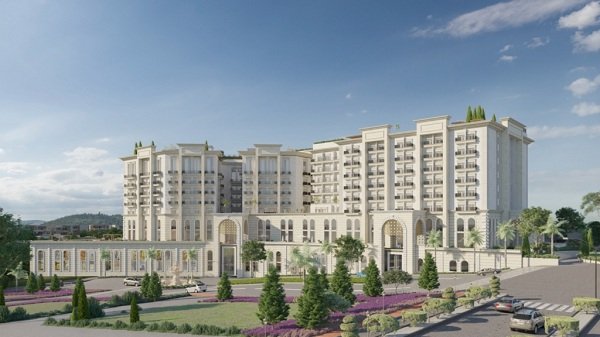Pakistan’s real estate sector is undergoing a change – rather a paradigm shift – the need for which was emphasized by Prime Minister (PM) Imran Khan ahead of last year’s general elections. Without referring to this transformation of realty dynamics as a promising sign or a bad omen, one can aptly observe that this metamorphosis (triggered by recent structural reforms aggressively pursued by the Pakistan Tehreek-e-Insaf-led government) is redefining the outdated rules that have had governed the local property marketplace for decades.
This article offers insights into all the latest happenings (and events) in the Pakistani real estate industry, as well as numerous outcomes expected from the regulatory measures introduced so far.
Zameen Developments unveil its latest project ‘Zameen Ace Mall’ in DHA Islamabad
Revamping the decades-old administrative machinery
The realization that the colonial system introduced by the British Raj requires a complete overhaul has come slow and late, but clear. To elaborate on this front, state executives (especially during the post-millennium period) undertook strenuous efforts to regulate massive wealth parked in the real estate sector. And, in this connection, the country saw an impressive volume of legislation introduced by successive governments in the last decade.
Until recently, Pakistan’s realty industry had a notorious reputation for being fiercely incomprehensible and un-regulated. But, the laws introduced so far offer a fresh (and positive) perspective on this commonly-held belief.
The measures introduced so far…
Among the regulatory measures introduced include various public awareness campaigns (launched by both the centre and state authorities) – which comes off as an extension of the aggressive real estate documentation drive. For this purpose, the officials concerned have uploaded large volumes of data detailing the legal status of housing schemes operating countrywide to the internet.
Previously, many of the unapproved residential projects enjoyed impunity from the law – occupying state land and cheating the public at large through false advertisements – owing to the politician-developer nexus. Now, with such individuals frequently under the radar of the anti-corruption watchdog, this unholy alliance seems to have broken down.
Similarly, efforts are afoot to provide the map/building approvals for commencing with the construction of projects on a timely basis. The Lahore Development Authority (LDA) recently updated its rules and regulations to facilitate the said process.
In a separate development, the federal commission tasked with making revisions to the Islamabad master plan proposed several relaxations in the approval requirements for the construction housing schemes in the capital city – in a bid to facilitate the easy (and quick) issuance of No-objection Certificates (NOCs) to private builders.
Moreover, PM Khan recently announced the development of additional high-rise buildings in the country with an aim to prevent urban sprawl. Previously, the primary focus had been on accumulation of plots – and this speculative mode of transaction involving large chunks of undeveloped land had made zero contribution to the economy.
Real estate in a technologically-driven era
Technological advancements, especially the internet, has made huge contributions to the development and growth of the global real estate sector. With the advent of online property portals in the early 2000s, the realty industry has been transformed from a small, traditional and largely localized setup to a vast (territorially-spanning) digital network – which facilitates a seemingly infinite number of real estate transactions on a daily basis.
The incumbent government in Pakistan has already realized the importance of the services provided by the e-classified advertisers. Consider the example of Zameen.com which hosts loads and loads of information on the local real estate. Further, this online advertiser enjoys great popularity with both domestic and international Pakistani users because it facilitates convenient access to the local property marketplace – providing just the right platform for buyer-seller interaction to take place.
NPHP: an ambitious project with a promising future
The Naya Pakistan Housing Programme (NPHP) is another great initiative with the potential to redefine the dynamics of the real estate sector. Previously, the country’s property marketplace had strictly catered to the luxury property market in return for lucrative gains; providing residential facilities only to those who could afford them.
But the government, through the development of the NPHP project, aims to provide five million affordable housing units to the society’s lower and middle-income segments. In the wake of the current housing crisis, the executive’s efforts to successfully construct even half the number (2.5 million) during its five-year tenure would come off as a massive achievement. Similarly, if the government succeeds in constructing that many homes, it will change the focus of the sector from the provision of luxury to affordable housing. The simple economics of the construction will change the outlook as, at least temporarily, the prices will rise significantly for all the construction material. At the same time, it should have a negative correlation with speculative, overly-expensive property being sold otherwise.
A long road ahead…
While it will take some time for the state to succeed in its endeavours (aimed at reforming the national economy), Pakistan has yet to fulfil key requirements concerning the prevention of terror-funding and money-laundering activities communicated by international institutions. Most recently, the Financial Action Task Force (FATF) retained the country on its ‘grey list’; asking Islamabad to deliver on its commitment with regard to the implementation of anti-terror financing and money-laundering initiatives.
Aside from the political aspects of this ‘international pressure’, one simple reason behind this mounting demand for fixation of strategic deficiencies is that Pakistani laws have yet to keep up with global technological advancements – which come off as the zeitgeist of the 21st century.
Failure to meet these aforementioned international obligations could reportedly create disastrous financial consequences – in the form of economic sanctions – for the South Asian nation.
As of now, Pakistan has exhibited a growing reliance on remittances for its foreign exchange earnings. But, the country needs to shift its focus towards the revitalisation of export activities in order to improve its ranking in the global market.
In other words, change is afoot for the real estate of Pakistan and, for good or bad, the next few years will serve as witness to the sector’s transformation. These shifts can be expected to be quite so effective that it will also require a difference in how the realtors engage with the sector.

Sundus Anwar believes in the power of clear, straightforward writing. Her blog posts tackle everyday topics with relatable insights and easy-to-follow advice. With a conversational style, she makes complex subjects feel understandable. She’s dedicated to sharing knowledge and empowering readers to take action. Find her latest posts on trending in social.











